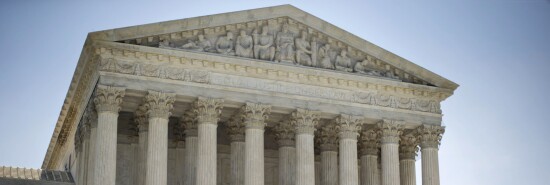
Most voters agree with Supreme Court’s affirmative action ruling
Christopher Tremoglie
Video Embed
Despite left-wing, liberal, and Democrat claims to the contrary, most voters favor the Supreme Court’s recent ruling against race-based admissions for colleges and universities. The revelation was a positive development for all who want to finally see the country move on from its obsession with race.
A new poll from Rasmussen Reports showed that 65% of likely voters in the country agree with the court’s decision in Students for Fair Admissions, Inc. v. President and Fellows of Harvard College. This included nearly half of all respondents (49%) who “strongly approved,” according to the poll. Conversely, only 28% of voters did not support the decision, including 16% of those who “strongly disapprove” of the court’s ruling.
NO SPECIAL TAX BREAKS FOR WEALTHY BLUE STATE REPUBLICANS
“The race-based admissions systems that respondents employ also fail to comply with the twin commands of the Equal Protection Clause that race may never be used as a ‘negative’ and that it may not operate as a stereotype,” the court’s decision read.
“How else but ‘negative’ can race be described if, in its absence, members of some racial groups would be admitted in greater numbers than they otherwise would have been? The ‘[e]qual protection of the laws is not achieved through indiscriminate imposition of inequalities,’” the court’s decision also read.
And, perhaps most importantly, as noted in the Supreme Court’s decision, “The First Circuit found that Harvard’s consideration of race has led to an 11.1% decrease in the number of Asian-Americans admitted to Harvard.” This was evidence of the racial discrimination that race-based admissions created and one of the many reasons the court ended it.
And after ruling that the colleges which used race-based admissions violated federal civil rights law and the Fourteenth Amendment of the United States Constitution, Chief Justice John Roberts opined, “Eliminating racial discrimination means eliminating all of it.”
Support for the court’s decision largely fell along political party lines, with 81% of Republicans supporting the decision. And while some may find it puzzling that nearly 1-in-5 Republicans actually disapproved, perhaps the most startling revelation in this survey was that 52% of Democrats and 64% of unaffiliated voters also approved of the court’s ruling.
CLICK HERE TO READ MORE FROM THE WASHINGTON EXAMINER
Race unfortunately has been a prominent factor in much of our country’s history. However, regardless of political party, nearly everyone today no longer wants it to be an issue. To advance beyond this country’s fixation with race and ethnicity, our society must truly move beyond it. This is accomplished by believing that all people are truly created equal and have an equal opportunity to succeed, irrespective of one’s race, ethnicity, or background, and by treating all people with dignity and respect. If we agree to that, we will never need anything to do with race again.
